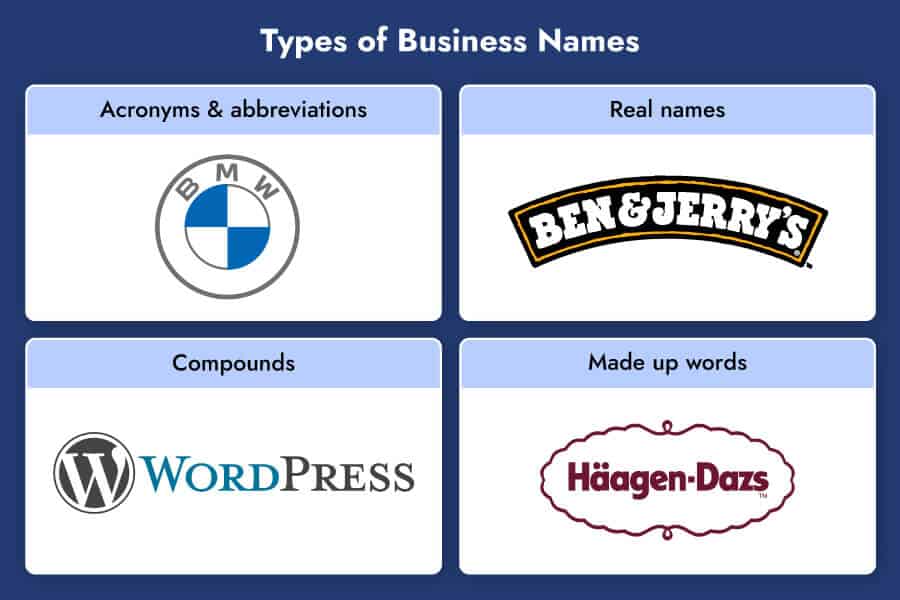How Do You Come Up With A Business Name

Choosing a business name is more than just a creative exercise; it's a foundational step that can significantly impact brand recognition, marketing effectiveness, and ultimately, business success. The right name can attract customers, convey brand values, and differentiate a company from its competitors. A poorly chosen name, however, can lead to confusion, limit growth, and even result in costly rebranding efforts later on.
The stakes are high, prompting entrepreneurs to carefully consider various strategies and resources when brainstorming and selecting the perfect moniker for their ventures. This article delves into the multifaceted process of crafting a business name, exploring key considerations, proven techniques, and expert insights to guide aspiring business owners through this critical decision.
Brainstorming and Ideation
The initial stage involves generating a wide range of potential names. Brainstorming is key and should involve a diverse group of people to capture different perspectives.
Start by defining your brand's core values, target audience, and unique selling proposition. Think about the emotions and associations you want your name to evoke.
Techniques for Generating Ideas
Several techniques can help spark creativity. One popular method is to use a word association game, starting with keywords related to your business and branching out from there.
Another approach involves combining words, using prefixes and suffixes, or even inventing new words altogether. Many successful brands, like Kodak and Xerox, have names that were entirely fabricated to be unique and memorable.
Consider using a thesaurus to find synonyms and related terms that might inspire fresh ideas. Don't be afraid to think outside the box and explore unconventional options.
Evaluating Potential Names
Once you have a list of potential names, it's time to evaluate them based on several criteria. Memorability is crucial; a name should be easy to recall and pronounce.
Consider the length and simplicity of the name. Shorter names are generally easier to remember and more versatile for branding purposes. Check if it aligns with your brand's identity.
A name that clearly communicates what your business does or the value it provides can be a significant asset. However, avoid being too literal, as this can limit your brand's potential for growth and expansion.
Availability is also a critical factor. Ensure that the name is not already in use by another business, particularly in your industry or geographic area.
Perform a trademark search to avoid potential legal issues down the line. You can use the United States Patent and Trademark Office (USPTO) website to search for existing trademarks.
Furthermore, check if the corresponding domain name is available. In today's digital age, having a matching domain name is essential for online visibility and credibility.
Seeking Feedback and Validation
Before making a final decision, gather feedback from your target audience and trusted advisors. Ask them what they think of the names on your shortlist.
Do they find them memorable, appealing, and relevant to your business? Pay close attention to their initial reactions and associations.
Consider conducting market research to gauge the popularity and perceived value of different names. This can provide valuable insights into how your target audience will respond to your branding.
"Getting feedback is invaluable," says marketing consultant Sarah Chen. "It can help you identify potential pitfalls and refine your choices before you invest heavily in branding."
The Legal and Practical Considerations
After settling on a name, it's important to take care of the legal and practical aspects. Register your business name with the appropriate government agencies.
This may involve registering a Doing Business As (DBA) name or incorporating your business as a legal entity. Secure the domain name and social media handles associated with your chosen name.
This will protect your brand identity and prevent others from using your name online. Consider consulting with a lawyer to ensure that your business name does not infringe on any existing trademarks or intellectual property rights.
Looking Ahead: Evolving with Your Brand
A business name isn't static; it may need to evolve as your brand grows and changes. Consider how the name will resonate with future products or services.
Be prepared to revisit your branding strategy if your business undergoes a significant shift in direction. In some cases, a rebranding effort may be necessary to better align with your current identity and market positioning.
Choosing a business name is a challenging but rewarding process that requires careful consideration, creativity, and diligence. By following these guidelines and seeking expert advice, entrepreneurs can increase their chances of selecting a name that will help them build a successful and enduring brand.


















